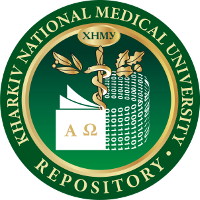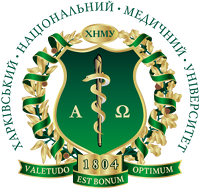Please use this identifier to cite or link to this item:
http://repo.knmu.edu.ua/handle/123456789/8367| Title: | MRI scan as a method of diagnosis of pulmonary cancer |
| Authors: | Kochubiei, Oksana Кочубей, Оксана Анатольевна Кочубєй, Оксана Анатоліївна Shirgba, Sonter Jacob |
| Keywords: | MRI scan pulmonary cancer respiratory medicine |
| Issue Date: | Nov-2014 |
| Publisher: | KhNMU |
| Citation: | Shirgba S. J. MRI scan as a method of diagnosis of pulmonary cancer / J. S. Shirgba, О. Kochubiei // Modern examination technique in pulmonology : internetional scientific students’ conference, Kharkiv, 4 of December, 2014 : abstract book. – Kharkiv : KhNMU, 2014. – Р. 50–51. |
| Abstract: | Pulmonology is known as chest medicine and respiratory medicine in some countries and areas. Pulmonology is considered a branch of internal medicine, and is related to intensive care medicine. Pulmonology often involves managing patients who need life support and mechanical ventilation. Pulmonologists are specially trained in diseases and conditions of the chest, particularly pneumonia, asthma, tuberculosis, emphysema, pulmonary cancer, and complicated chest infections. Test is Performed. You may be asked to wear a hospital gown or clothing without metal fasteners (such as sweatpants and a t-shirt). Certain types of metal can cause blurry images or be dangerous to have on in the scanner room. You will lie on a narrow table, which slides into a large tunnel-shaped scanner. Some exams require a special dye (contrast). The dye is usually given before the test through a vein (IV) in your hand or forearm. The dye helps the radiologist see certain areas more clearly. During the MRI, the person who operates the machine will watch you from another room. The test most often lasts 30-60 minutes, but may take longer. Prepare for the Test. You may be asked not to eat or drink anything for 4 - 6 hours before the scan. Tell your doctor if you are afraid of close spaces (have claustrophobia). You may be given a medicine to help you feel sleepy and less anxious, or your doctor may suggest an "open" MRI, in which the machine is not as close to the body. Before the test, tell your health care provider if you have: brain aneurysm clips; certain types of artificial heart valves; heart defibrillator or pacemaker; inner ear (cochlear) implants; kidney disease or dialysis (you may not be able to receive contrast); recently placed artificial joints; certain types of vascular stents; worked with sheet metal in the past (you may need tests to check for metal pieces in your eyes). An MRI exam causes no pain. If you have difficulty lying still or are very nervous, you may be given a medicine to relax you. Too much movement can blur MRI images and cause errors.The table may be hard or cold, but you can request a blanket or pillow. The machine produces loud thumping and humming noises when turned on. You can wear ear plugs to help reduce the noise.An intercom in the room allows you to speak to someone at any time. Some MRIs have televisions and special headphones that you can use to help the time pass.There is no recovery time, unless you were given a medicine to relax. After an MRI scan, you can resume your normal diet, activity, and medications. A chest MRI provides detailed pictures of tissues within the chest area. A chest MRI may be done for the following reasons: as an alternative to angiography, or to avoid repeated exposure to radiation; clarify findings from previous x-rays or CT scans; diagnose abnormal growths in the chest; evaluate blood flow; show lymph nodes and blood vessels; show the structures of the chest from multiple angles; see if cancer in the chest has spread to other areas of the body - this is called staging; staging helps guide future treatment and follow-up and gives you some idea of what to expect in the future; tell the difference between tumors and normal tissue. A normal result means your chest area appears normal. An abnormal chest MRI may be due to: abnormal blood vessels in the lungs (pulmonary vessels); bronchial abnormalities; pulmonary cancer. In lung cancer the image will be dark in the area that is affected. |
| URI: | https://repo.knmu.edu.ua/handle/123456789/8367 |
| Appears in Collections: | Наукові роботи молодих вчених. Кафедра пропедевтики внутрішньої медицини № 1, основ біоетики та біобезпеки |
Files in This Item:
| File | Description | Size | Format | |
|---|---|---|---|---|
| Kochubiei_Shirgba Sonter Jacob.doc | 25 kB | Microsoft Word | View/Open |
Items in DSpace are protected by copyright, with all rights reserved, unless otherwise indicated.

